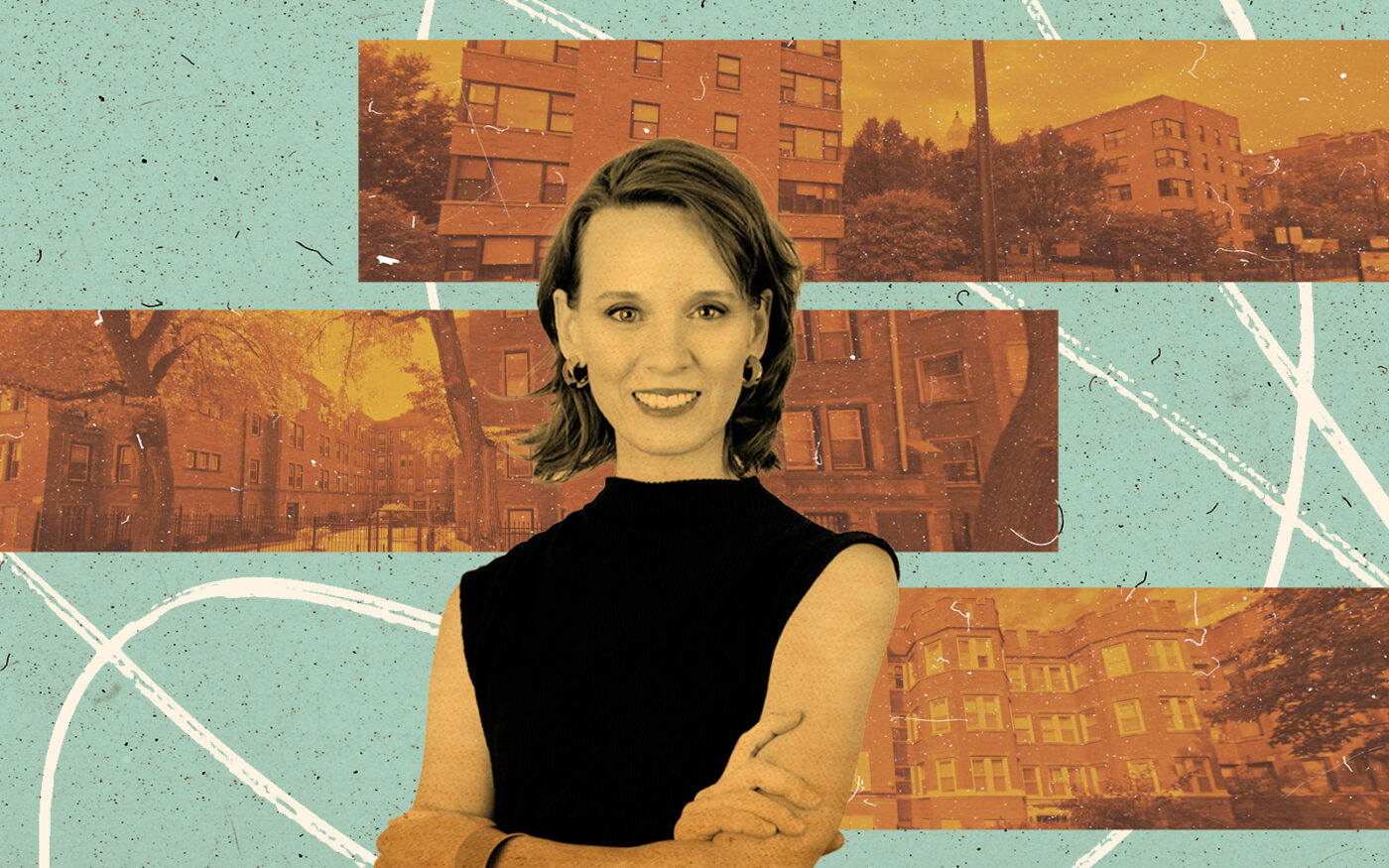Trinity Flood has been swept up in a deluge of financial distress tied to Chicago real estate.
The Wisconsin-based investor that paid $18 million for a trio of South Shore multifamily properties in 2020 is facing a $27 million foreclosure lawsuit for failing to make loan payments on the deal, public records show.
Flood also purchased three properties in Georgia and one in Arizona with a $25.3 million loan that was later packaged up with other real estate debt and sold off to commercial mortgage-backed securities investors. The landlord is now in danger of losing all 354 units, including 208 in South Shore, in the foreclosure lawsuit.
It’s the latest portfolio in South Side neighborhoods to fall into default on a big loan for a purchase between 2020 and 2022 at prices that signaled rising speculation yet failed to materialize into profits for some investors, particularly those who ended up with buildings needing substantial repairs.
The loan wasn’t scheduled to mature until 2030, indicating there’s been significant financial difficulty in making interest payments from rent revenues.
The seven-property Flood portfolio posted a debt service-coverage ratio of just 0.62 for last year, meaning it’s taking in only 60 percent of the revenue needed to break even after accounting for expenses and debt service costs, according to Morningstar Credit.
After annual revenues of $3.5 million, expenses of $2.5 million and debt service costs of $1.4 million, the apartments portfolio faced an annual shortfall of nearly $470,000 last year, and it appears the landlord has been unwilling to go into pocket to cover the gap, loan servicer data shows.
Flood has also struggled to pay the utility bills for the Illinois properties, and there was a risk utility service would be shut off without prompt payment as of late December, according to a letter from Bob Stupar, an attorney with Bryan Cave Leighton Paisner, who represents bondholders in the CMBS loan.
Trinity Flood didn’t return a request for comment, and neither did an attorney for K-Star Asset Management, the special servicer overseeing the loan on behalf of bondholders.
The landlord has tried to work out a deal to cure the problems with the portfolio, the lawsuit shows. Flood proposed a partial payoff of the loan that would have required a sale of the Illinois properties. It would have allowed the lender to accept a $13.8 million partial paydown of the loan balance through the South Shore sales, and a remaining balance of $10 million for the loan.
The lender rejected the proposal, which it said would have been “effectively writing off $3 million of the loan balance,” adding that it “is not in the lender’s best economic interest.”
Flood failed to pay the full monthly debt service costs on the portfolio starting in December and has also refused to pay a shortfall for the Arizona property’s real estate taxes, the lawsuit shows. The lender was forced to bring extra money to the deal to avoid a tax delinquency and protect its collateral, it said.
Earlier in the negotiation process, Flood requested the lender to accept a $22.5 million discounted loan payoff, that would have been achieved by a $13.5 million loan assumption offer for the Chicago properties, in addition to a $9.5 million refinance of the Georgia and Arizona properties.
But the lender again rejected the proposal, as the loan balance had exceeded $27 million, plus the lender expressed concern that it hadn’t been aware of any marketing efforts for the Chicago properties, including whether a broker had been hired. It also said it hadn’t received any information regarding the proposed refinancing, such as a term sheet or a loan-to-value ratio for the properties. All that was provided by the borrower was a statement from a debt broker expressing it was ready to help with a loan search.
“Assuming a refinance lender will not lend 100 percent of the value of the Arizona property and the Georgia properties, there appears to be a significant amount in equity that the borrower is looking to retain for itself through such transaction and, thus, cause a corresponding loss to the lender,” Stupar wrote to Flood in November.
Read more


